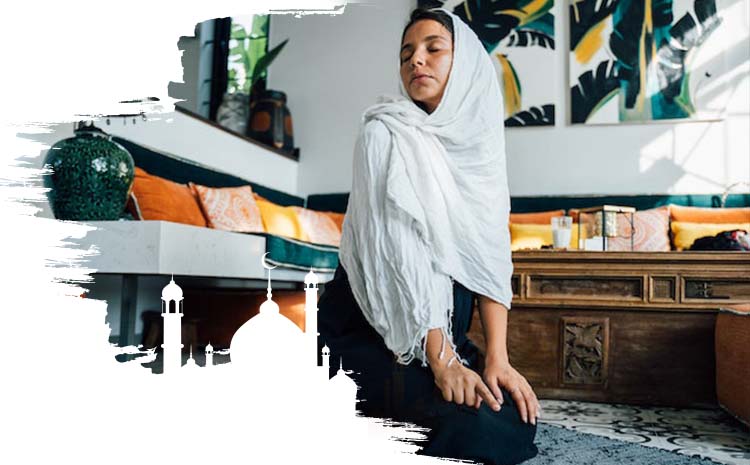THE RIGHTS OF WOMEN: EMPOWERMENT, EQUALITY, AND PERSPECTIVES IN ISLAM AND COMMON MISUNDERSTANDINGS
- Introduction: Women’s rights have been a subject of considerable debate and advocacy throughout history. These rights encompass a broad range of social, political, and economic entitlements that recognize the inherent worth and agency of women in society. Muslims around the world celebrate Muslim Women’s Day on March 27. This paper aims to explore the rights of women, with a particular focus on their position within Islam.
- What are Women’s Rights: Women’s rights refer to the legal, social, and economic rights and entitlements that promote gender equality and safeguard the well-being and autonomy of women. These rights include but are not limited to the right to life, freedom, education, work, and political participation. They are fundamental to the principles of justice, dignity, and fairness.
- Major Concepts Related to Women’s Rights
- Gender Equality: The principle of gender equality asserts that men and women should have equal opportunities and rights in all spheres of life. It emphasizes the elimination of discrimination based on gender and challenges traditional gender roles and stereotypes.
- Empowerment: Women’s empowerment involves equipping women with the knowledge, skills, and resources necessary to make informed decisions and participate fully in social, economic, and political life. It aims to enhance their agency, self-esteem, and control over their own lives.
- Education: Education is a crucial component of women’s rights. Access to quality education enables women to develop critical thinking, acquire knowledge, and enhance their economic prospects. It also fosters gender equality and challenges harmful practices such as child marriage and gender-based violence.
- Access to Healthcare: Women have the right to access affordable healthcare services throughout their lives. This includes reproductive health services, maternal care, and addressing specific health concerns, such as breast and cervical cancer.
- Women’s Rights in Islam: Islam, as a major world religion, has its principles and provisions regarding women’s rights. The rights of women in Islam are a topic that has been subject to different interpretations and opinions throughout history. According to the primary sources of Islam, the Quran, and the hadith literature, women have been granted various rights and responsibilities in different aspects of life, such as inheritance, property, marriage, divorce, education, worship, and social justice. These teachings include:
- Equality and Dignity: Islam acknowledges the fundamental equality and dignity of all human beings, regardless of gender. The Quran affirms the spiritual equality of men and women and emphasizes the equal value and worth of both sexes.
- Education and Knowledge: Islam encourages the pursuit of knowledge for both men and women. The Prophet Muhammad (peace be upon him) emphasized the importance of education, and numerous female scholars throughout Islamic history have made significant contributions to various fields of knowledge. The right to education and learning at all levels and fields. Women have the right to seek knowledge and pursue their intellectual interests, as well as to contribute to the advancement of science, arts, culture, and society. Women have played significant roles in Islamic history as scholars, teachers, poets, jurists, rulers, activists, and more.
- Marital and Family Rights: Islamic teachings emphasize the importance of mutual respect, love, and kindness within marital relationships. The right to marry freely and consensually, without any coercion or compulsion from anyone. Women have the right to accept or reject marriage proposals, to stipulate conditions in their marriage contracts, to receive a marital gift (mahr) from their husbands, and to keep their maiden names after marriage. The right to divorce their husbands if they are unhappy or mistreated in their marriages. Women have the right to initiate divorce through different means, such as khula (where they return the mahr or other compensation to the husband), talaq (where they ask the husband to divorce them), or judicial intervention (where they seek the help from a judge or an authority). Women also have the right to custody of their young children after divorce, unless they remarry or are proven unfit.
- Economic Rights: Islam recognizes and safeguards the economic rights of women. Women have the right to own and manage property, engage in business and commerce, and retain their financial independence. The right to inherit from their relatives, according to a specific share that is determined by the Quran. For example, a daughter inherits half the share of a son, a wife inherits one-eighth or one-fourth of her husband’s estate, and a mother inherits one-sixth or one-third of her child’s estate. The right to own property and income independently of their husbands or male guardians. Women are entitled to keep their present and future assets and earnings for their security and benefit. They are not obliged to spend any of their wealth on household or family expenses unless they voluntarily choose to do so.
- Legal and Political Participation: Islam promotes the active participation of women in the legal and political spheres. Women have the right to voice their opinions, participate in decision-making processes, and seek justice through the legal system. The right to worship God and practice their faith according to their beliefs and convictions. Women have the right to access mosques and other religious spaces, to perform prayers and rituals, to recite and study the Quran and other religious texts, to participate in religious activities and events, and to seek spiritual guidance and leadership. Women are also obliged to fulfill the same religious duties as men, such as fasting, charity, pilgrimage, etc. unless they are exempted for valid reasons.
- Misunderstanding related to Women’s Rights in Islam. These are some of the basic rights that Islam has given to women since its inception. However, these rights are not always recognized or implemented by some Muslim individuals or groups who may follow different interpretations or traditions that are contrary to the spirit of Islam. Therefore, Muslims and non-Muslims alike need to learn more about the authentic sources of Islam and the diverse views of Muslim scholars and women on this topic. There are several common misunderstandings related to women’s rights in Islam. It is important to address these misconceptions to foster a more accurate understanding. Here are some of the common misunderstandings:
- Subjugation and Oppression: One prevalent misconception is that Islam inherently oppresses women and promotes their subjugation. However, it is crucial to differentiate between cultural practices, patriarchal interpretations, and the actual teachings of Islam. Islamic teachings emphasize the equality and dignity of women, granting them rights and protections within the framework of the religion.
- Forced Marriage: Another misconception is the belief that Islam condones forced marriages. Forced marriages are cultural practices that exist in some Muslim-majority regions, but they are not supported or justified by Islamic teachings. Islam requires the consent of both parties in a marriage, and the free choice of the individuals involved is emphasized.
- Lack of Education: It is often assumed that Islam discourages women’s education. On the contrary, Islam promotes the pursuit of knowledge for both men and women. The Prophet Muhammad (peace be upon him) emphasized the importance of education and seeking knowledge, and throughout Islamic history, there have been numerous examples of female scholars and educators.
- Inferiority in Legal Matters: Some misconceptions arise from a misunderstanding of Islamic legal principles. While it is true that there are differences in specific legal contexts, Islamic law upholds the principle of equal dignity and worth of both men and women. Women have the right to seek justice, participate in legal proceedings, and have their voices heard.
- Restrictive Dress Code: The hijab, or modest dress, is often misunderstood as a symbol of oppression. However, the choice to wear the hijab is a personal and religious decision for Muslim women, and it is not imposed upon them. The hijab is considered a form of modesty and an expression of faith.
- Limited Role in Society: Islam does not limit women’s roles to the private sphere. Muslim women have historically played active roles in various aspects of society, including education, business, politics, and social activism. Islamic teachings encourage women to contribute to their communities and utilize their talents and skills.
- Women in Islam do not have the right to divorce: Many people believe that Muslim women have no right to divorce their husbands. This is not true. According to Quran, “there is no blame on either of them if they came to terms with mutual consent and agreement (2:29-231)”¹⁴. Muslim women can initiate divorce for various reasons, such as cruelty, neglect, adultery, impotence, etc. They can also seek khula, which is a dissolution of marriage by returning the dowry to the husband².
- Women in Islam are inferior to men: This is a false notion that contradicts the Quran and the Sunnah (traditions) of the Prophet Muhammad (peace be upon him). Islam teaches that men and women are created from the same soul and that they are equal in dignity and worth. The Quran says: “O mankind! We created you from a single (pair) of a male and a female, and made you into nations and tribes, that you may know each other (not that you may despise each other). Verily the most honored of you in the sight of Allah is (he who is) the most righteous of you (49:13)”. The Prophet Muhammad (peace be upon him) said: “The best of you are those who are best to their wives”. Islam does not assign superiority or inferiority to any gender but rather acknowledges their complementary roles and responsibilities in society.
- Conclusion: The rights of women are crucial for the progress, well-being, and prosperity of any society. They encompass principles of equality, empowerment, education, and access to healthcare. In the Islamic context, women’s rights are grounded in the teachings of the Qur’an and the examples set by the Prophet Muhammad (peace be upon him). Understanding and advocating for women’s rights in all cultural and religious contexts is essential to achieving a more equitable and just world. It is important to approach the topic of women’s rights in Islam with an open mind, recognizing that cultural practices, individual interpretations, and varying societal contexts may influence the implementation of these rights. By engaging in informed and nuanced discussions, we can dispel misunderstandings and promote a more accurate understanding of women’s rights within the Islamic framework.





